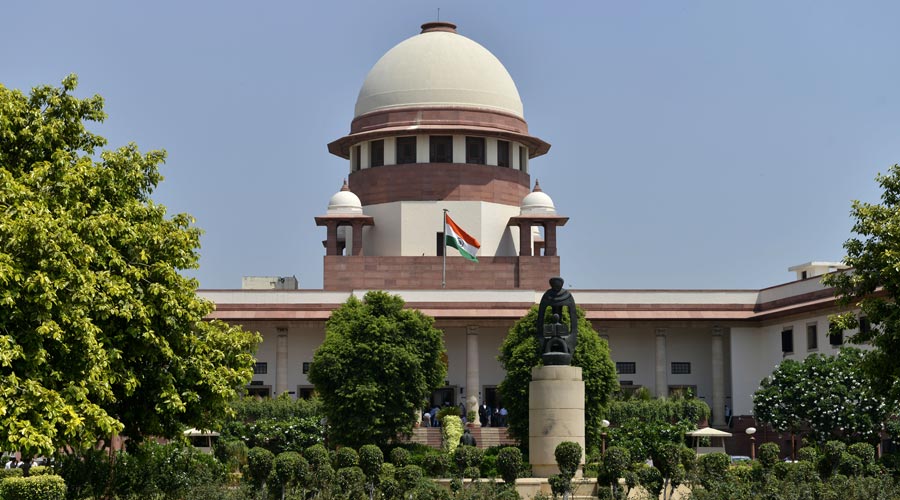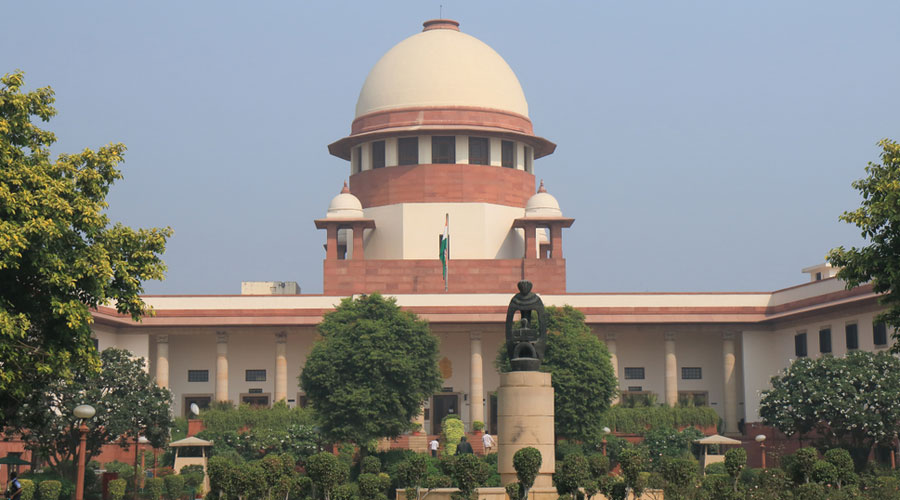The Supreme Court on Thursday suggested that the state of Chhattisgarh or the CBI explore the criminal prosecution of a social activist who had filed a PIL accusing security forces of the massacre of 15 tribals in 2009, echoing its directive in the Ehsan Jafri case that led to the arrest of rights activist Teesta Setalvad and whistleblower cop R.B. Sreekumar.
A bench of Justice A.M. Khanwilkar and Justice J.B. Pardiwala rejected the plea for a CBI probe into the massacre, imposed a fine of Rs 5 lakh on petitioner Himanshu Kumar but let off 12 co-petitioners — all tribals and relatives of the deceased — on the ground that they were illiterate and rustics and had no idea about the contents of the PIL.
The court noted that the first information reports lodged by the writ petitioners at different police stations were investigated and the investigating agency reached the conclusion that the police force had no role to play, and that Maoists were responsible for the massacre.
“Prima facie, it could be said that false information was given by the first informants to the police as regards the alleged massacre by the police force,” it said in the 94-page judgment.
“We leave it to the State of Chhattisgarh/CBI (Central Bureau of Investigation) to take appropriate steps in accordance with law as discussed above in reference to the assertions made in the interim application. We clarify that it shall not be limited only to the offence under Section 211 of the IPC. A case of criminal conspiracy or any other offence under the IPC may also surface,” the bench said.
“We may not be understood of having expressed any final opinion on such action/proceedings. We leave it to the better discretion of the State of Chhattisgarh/CBI to act accordingly keeping in mind the seriousness of the entire issue,” it added.
The massacre took place on September 17, 2009, and October 1, 2009, in the villages of Gachhanpalli, Gompad and Belpocha, respectively, in Dantewada district.
Himanshu Kumar, who runs the NGO Vanvasi Chetna Ashram in Dantewada, had filed the petition in 2009 seeking a CBI probe into the massacre and alleging that it was carried out jointly by Chhattisgarh police, special police officers (SPOs), activists of Salwa Judum (a group of vigilantes sponsored by the Chhattisgarh government) and paramilitary forces from CRPF and CoBRA battalions.
The petition was filed jointly with 12 relatives of the deceased tribals.
Kumar had alleged the tongues and limbs of the tribals were chopped off by the security forces who did not spare even infants and a 70-year-old woman. He alleged that they also looted money and belongings of the victims.
The official version was that Maoists were behind the massacre. The Centre and the state government told the court that false allegations had been levelled with mala fide intention to derail the efforts of the security forces to neutralise Left-wing extremism, deprive them of dignity and credibility and lower their morale by portraying them as demons and national villains.
Rejecting the plea for a CBI probe, the apex court said: “We are of the view, having regard to the materials on record, that no case worth the name for further investigation or re-investigation could also be said to have been made out. The filing of the charge sheets at the conclusion of the investigation into the various FIRs referred to above would indicate that the alleged massacre was at the end of the Naxalites (Maoists).
“The materials collected in the form of the 56 charge sheets substantiate the case put up by the respondents (Centre and Chhattisgarh government) that the villagers were attacked and killed by the Naxalites. There is not an iota of material figuring in the investigation on the basis of which even a finger can be pointed towards the members of the police force.”
Justice Khanwilkar, who headed the bench, was among the judges who on June 24 rejected a writ petition filed by Zakia Jafri, whose husband Ehsan Jafri had been brutally murdered, for a probe into a wider conspiracy behind the Gujarat riots. The court also said that those who had kept the pot boiling should be put in the dock and proceeded with in accordance with law.
The judgment, which led to the arrest of Setalvad and Sreekumar, had been widely criticised by activists and judges who said it sent out the message that the Supreme Court was saying it could not be approached for justice and that a petitioner could be turned into an accused.












